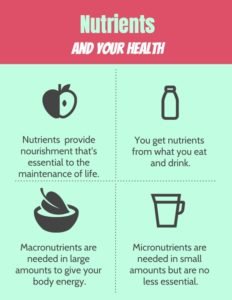What are Micronutrients?
Nutrients are substances that provide "nourishment essential for growth and the maintenance of life." They are necessary for survival.But where do you get them? Well that depends on the type. There are two major types of nutrients: macronutrients and micronutrients.Macronutrients provide structural material and energy. They also make up the bulk of what most people eat each day. Your body needs macronutrients in large amounts in order to keep working correctly. Protein, carbohydrates, and fats are all macronutrients.Micronutrients are needed in smaller amounts and include vitamins and minerals. Micronutrients don’t drive the calories in your diet, but they do have a significant impact on your health, which is why we've launched this new series.Common micronutrients you may have heard of include...
- Calcium
- Copper
- Folate
- Iodine
- Iron
- Magnesium
- Manganese
- Niacin
- Potassium
- Riboflavin
- Selenium
- Sodium
- Thiamine
- Vitamin A
- Vitamin C
- Vitamin B6
- Vitamin B12
- Vitamin D
- Vitamin E
- Vitamin K
- Zinc
In our next set of posts, we're going to dive deep into each of the CDC's six essential micronutrients: vitamin A, vitamin D, folate, iodine, iron, and zinc, so get ready!And in the meantime, here's a handy handout I thought you'd like.


